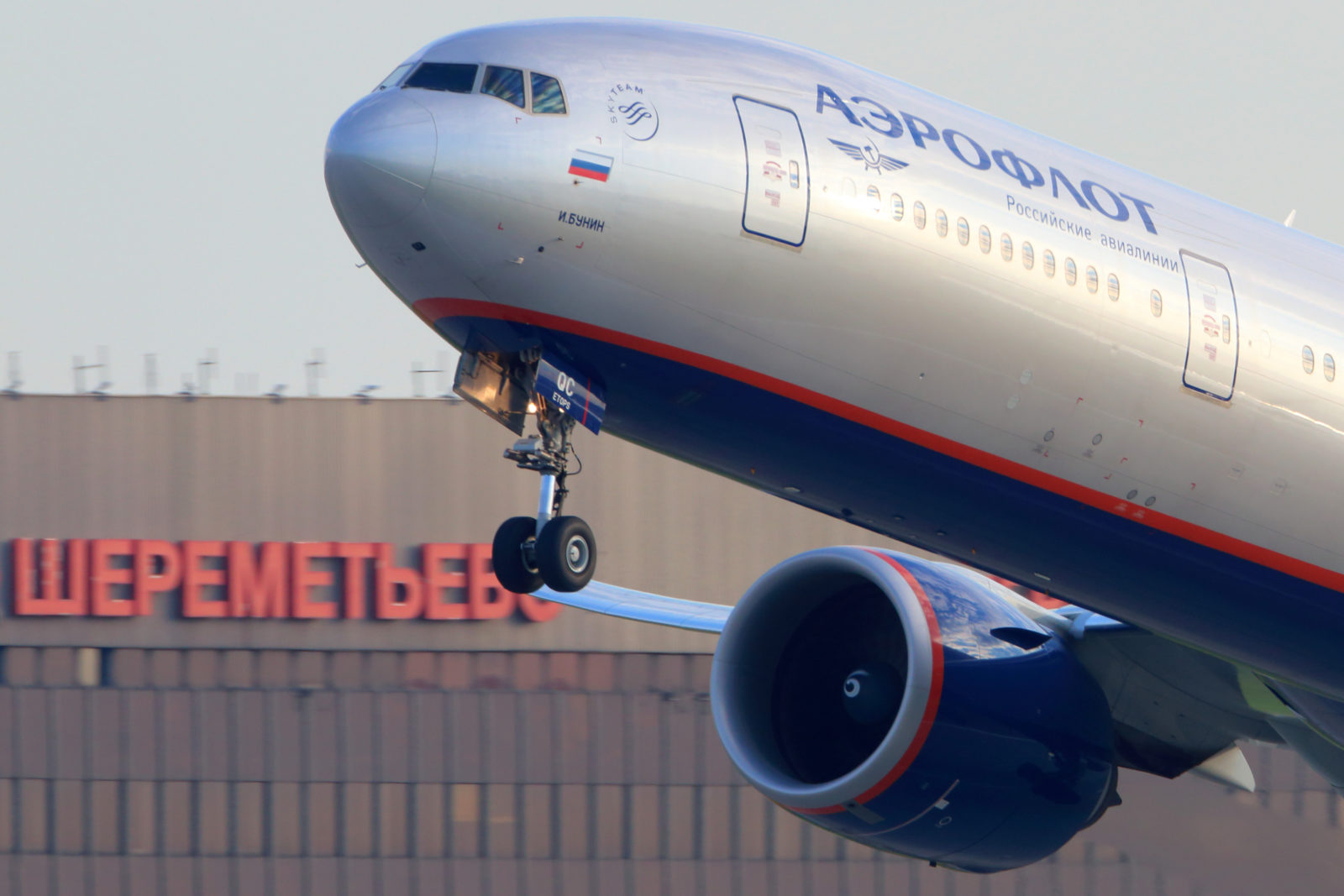
The Russian flag carrier Aeroflot has reportedly ordered flight attendants to stop recording faults and defects in the passenger cabin or report issues with emergency equipment because the sanction-hit airline lacks the spare parts to fix them.
Before Russia’s invasion of Ukraine, flight attendants at the Moscow-based airline were required to systematically record even the most minor of faults in the passenger cabin in official logbooks and were subject to regular audits to make sure defects were being accurately reported.
Typical issues that are down to flight attendants to report can range from minor issues with passenger entertainment systems to broken coffee brewers and faulty galley ovens to used or inoperable emergency equipment like oxygen bottles and fire extinguishers.
Before the war, Aeroflot followed international aviation guidelines in reporting and dealing with these faults through the use of two logbooks. One logbook tracks faults and issues with the actual plane, and the other logbook is used to report issues in the passenger cabin.
Once a defect is reported in the cabin logbook, engineers must either fix it immediately or decide whether it can be deferred to a later date in accordance with the manufacturer’s instructions or regulators requirements.
For example, a used oxygen bottle might not need to be replaced for ten days so long as there was still enough onboard to comply with the manufacturer’s ‘master minimum equipment list’.
But if the defect wasn’t ‘cleared’ within the accepted timeframe or the defect clashed with the minimum equipment list, then the plane has to be grounded until the defect is dealt with.
In Putin’s sanction-hit Russia, however, airlines are banned from importing many of the spare parts that are manufactured for the aviation industry outside of Russia, which means that defects can’t be easily fixed by engineers.
Russian airlines have defied the expectations of senior aviation analysts by continuing to fly since the start of the war last February despite fears that safety is being compromised because of a lack of maintenance and spare parts.
Aeroflot has reportedly managed to send some of its aircraft to Iran for maintenance, while Russian publication Proekt reports that Aeroflot ordered flight attendants to stop reporting defects unless they obtained the permission of the Captain.
The purpose of this instruction was to ensure that the defect wouldn’t clash with the minimum equipment list or present a problem because it couldn’t be deferred for weeks if not months.
Sources told the publication that planes have been sent out with missing oxygen bottles, and one aircraft flew for six months with a broken lavatory vacuum generator. Ordinarily, this type of issue would need to be fixed within ten days.
It’s not uncommon for international airlines to defer defects until a later date, but it is highly unusual for flight attendants to need to get permission from the Captain before reporting a problem.
Russian carriers are barred from flying to Europe, the UK, Canada and the United States, but Aeroflot quickly shifted its operations to other countries that have remained neutral, including Turkey, the United Arab Emirates, India and Thailand.
Last year, the British government claimed Aeroflot was “actively promoting unsafe practices” and added the airline to its so-called Air Safety List of airlines that don’t meet international safety standards.
Mateusz Maszczynski honed his skills as an international flight attendant at the most prominent airline in the Middle East and has been flying ever since... most recently for a well known European airline. Matt is passionate about the aviation industry and has become an expert in passenger experience and human-centric stories. Always keeping an ear close to the ground, Matt's industry insights, analysis and news coverage is frequently relied upon by some of the biggest names in journalism.







